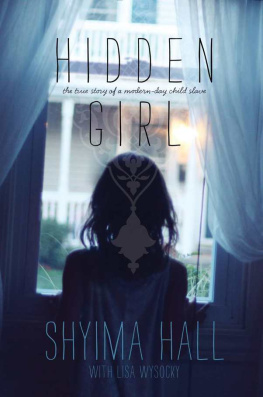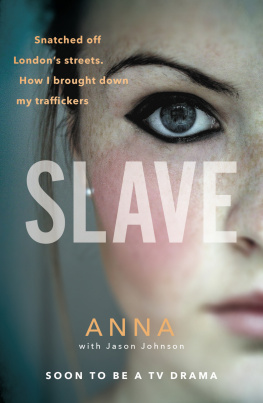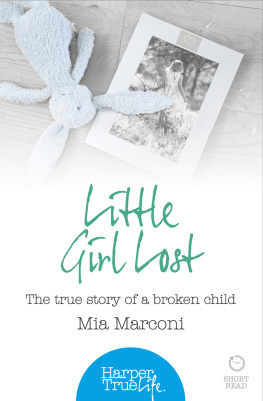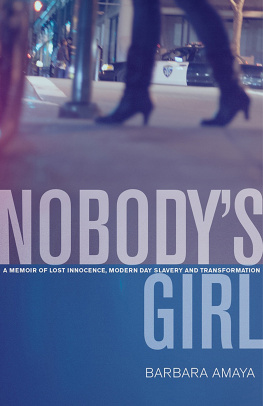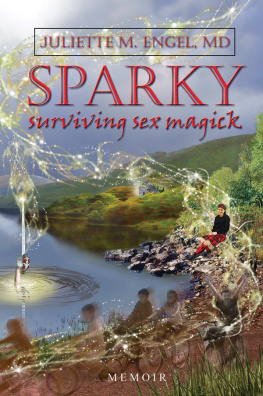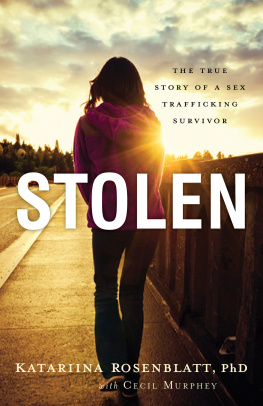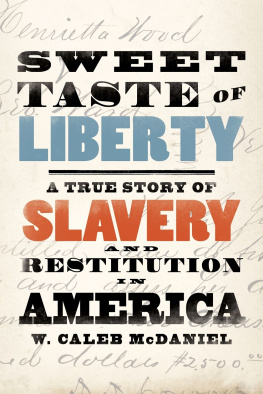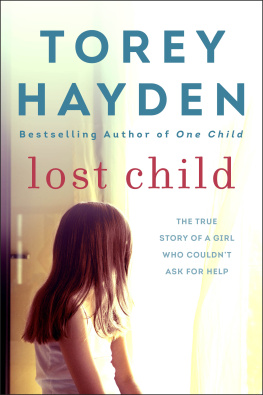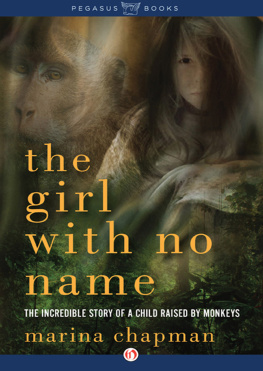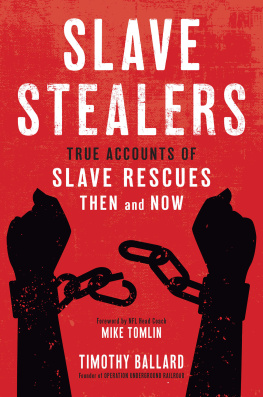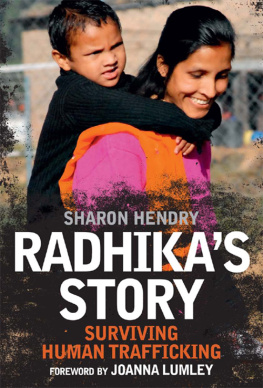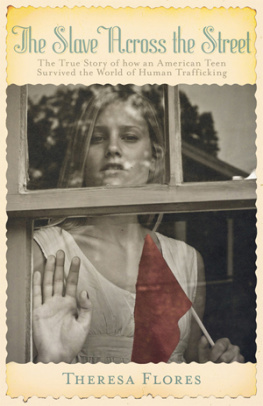
Thank you for downloading this eBook. Find out about free book giveaways, exclusive content, and amazing sweepstakes! Plus get updates on your favorite books, authors, and more when you join the Simon & Schuster Teen mailing list. C LICK H ERE TO L EARN M ORE or visit us online to sign up at
eBookNews.SimonandSchuster.com/teen

To Mark Abend, for helping me navigate life in the United States, for his assistance in helping me raise awareness of basic human rights, and for his dedication to end slavery in our world.S. H.
ACKNOWLEDGMENTS
I would first like to thank ICE (Immigration and Customs Enforcement) and the caring people there for rescuing me. If not for them, I might still be held in bondage. Thank you to Lisa Wysocky (my coauthor), Sharlene Martin (my literary agent), Zareen Jaffery (our editor), and our publisher, Simon & Schuster Books for Young Readers, for helping me tell my story. Last but never least, a big thank-you has to go to my loved onesAthena, Daniel, Karla, Amber, Teresa, and PaNoufor the many times you showed me how much you love and care for me. I love you all.
S. H.
Shyima Hall is a remarkable young woman who has overcome astonishing odds to become the strong, independent person she is today. I want to thank her for sharing her story intimately with me, and ultimately with you. Huge thanks to literary agent Sharlene Martin of Martin Literary Management, for always going the extra mile; to Special Agent Mark Abend for being diligent in confirming the details of Shyimas life; and to Daniel Uquidez, Amber Bessix, Teresa Bessix, and Karla Pachacki, who were all extremely helpful. To Zareen Jaffery and everyone else at Simon & Schuster Books for Young Readers: This book would not have become a reality without you. Human trafficking in the United States (and worldwide) is a serious and growing problem. Through Shyima, I hope you become more aware of this terrible practice and will share her story with others.
L. W.

CHAPTER ONE
Everyone has a defining moment in his or her life. For some it is the day they get married or have a child. For others it comes when they finally reach a sought-after goal. My life, however, drastically changed course the day my parents sold me into slavery. I was eight years old.
Before that fateful day I was a normal child in a large family in a small town near Alexandria, Egypt. Growing up in a poor neighborhood in Egypt is nothing like life for kids in America. Like many who lived in the community I was raised in, our family was quite poor. I was the seventh of eleven children, many of whom were much older, and to this day I cant recall the names of all of my brothers and sisters.
We moved many times when I was a child, but the last home I lived in with my family was our downtown second-story apartment. It was tiny, just two rooms that we shared with two other families, and there was not room during the day for everyone to be inside. At night our family slept together in a single room, and the two other families shared the second room. Our family slept on blankets on the floor, as we werent rich enough to have beds. There was one bathroom for everyoneincluding the people who lived in the other three units in the building.
I know my parents were happy onceI had seen photos of them laughing on the beach, and with their arms around each other, photos taken in the first years of their marriage. The parents I knew, though, didnt speak to each other. Instead, they yelled. And I never once saw them hold hands or embrace.
My dad worked in residential construction, possibly as a bricklayer, but he was often absent from our home for weeks at a time. When Dad did show up, he acted in a way that I now know is abusive. He was a loud, angry, belligerent, unreasonable man who beat us whenever he was displeased, which was often. My father eventually spent more and more time at his mothers, but this was not necessarily a bad thing, as life was calmer when he was not around.
Even though Dad beat us, there were good times with him too. A number of times he held me in his arms and told me how lucky he was to have me. It was during those times that I felt completely loved, and my own love for my dad would be strong.
But then hed flaunt other women in front of us, and in front of my mother. Outside wed see him flirting with women. Even as young as I was, I knew instinctively that was wrong. Plus, I could see the grim line of my mothers mouth and the sadness in her eyes. Unfortunately, in our neighborhood there were any number of women who thought nothing of spending private time with another womans husband. Most of the men I saw acted just as my dad did. It is sad to me that that kind of behavior was accepted.
Every time my dad came home, I hoped he would be different, but he never was. I hated waking up in the morning to hear my parents fighting, and thats why I was never too unhappy when he left to go back to his mothers house.
I didnt like my fathers mother, because she was as mean and bitter as he was. I did not know the rest of his family well enough to know if they were like that too. His family members did not like my mother and rarely came to see us. On the rare occasion when we visited his mothers home, my grandmother asked him in front of us about other women that he spent time with, and she made it a point to tell us how awful our mother was, even when our mother was present. I never understood that, because my mother was our rock. She was the backbone of our family and was the person who made sure we had what few clothes and food that we did have.
I dont know why my mother married my dad. Neither of their families approved of the match, but in the early years they had a good life near my mothers family in Alexandria. They had a nice home, four children, and were in love. Then an earthquake hit, and everything they had was reduced to rubble.
My mom and dad did not have the mental strength to move on from that level of disaster, for they never got their lives back together after that. Life began to spiral downward, and by the time I came along on September 29, 1989, my family was living in poverty in a slum.
When I was young, my mother was constantly sick, tired, and pregnant. I was later diagnosed with rheumatoid arthritis (RA), when I was in my teens, and I think my mother may have had it too, because genetics play a big part in who ends up with RA.
Rheumatoid arthritis is a long-term autoimmune disease that causes inflammation of the joints and surrounding tissues. Wrists, fingers, knees, feet, and ankles are most commonly affected, but RA can affect organs, too. The disease begins slowly, usually with minor joint pain, stiffness, and fatigue. Morning stiffness is common, and joints may feel warm, tender, and stiff when not used for a while. It is not an easy disease to live with, and it must have been even harder for my mother, who had few resources and who had to care for her many children.
In Egypt many children do not go to school. It is legal there for children to stop school and begin work when they are fourteen years old. Only families that need money force their children to begin working at that age, but the families that struggle the most dont send their kids to school at all. We were one of those families. I never went to school and never learned to read or write. (I did both much later in life, after I was freed.) I had four younger siblings, and my role in the family was to care for them while my parents worked.
Next page
